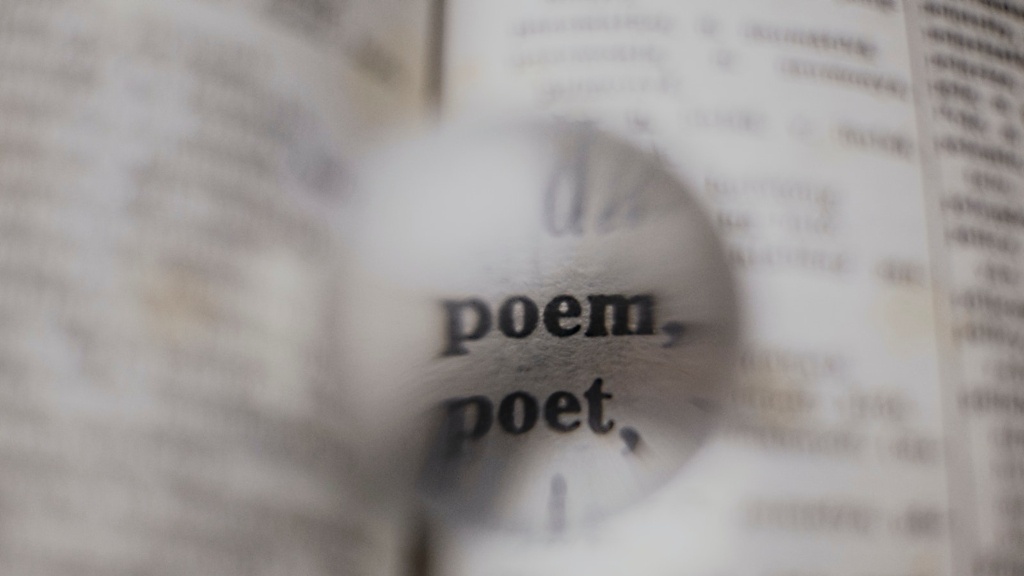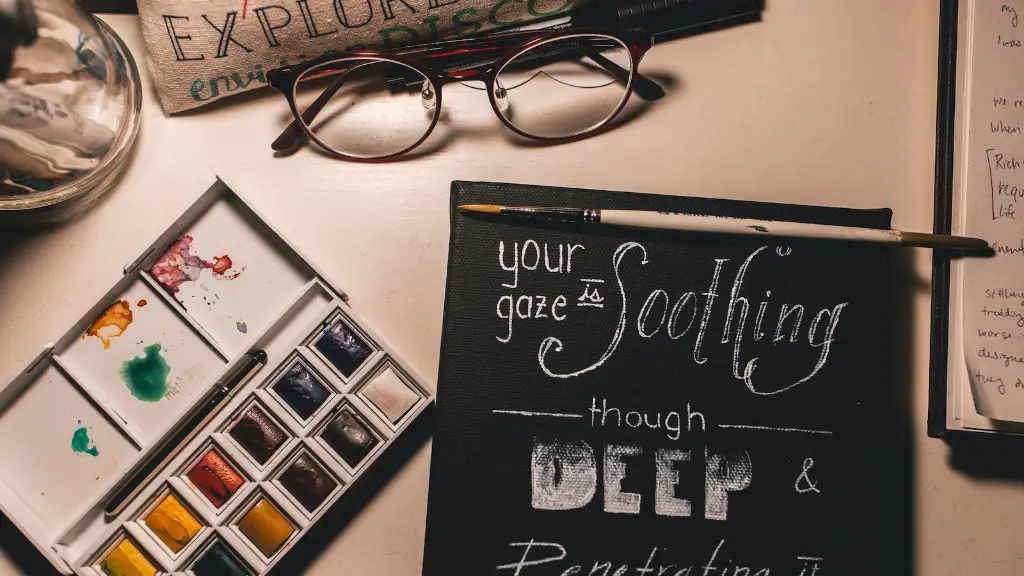What can poetry teach us? From a young age, poetry has had an instrumental role in molding the minds of people all over the world. It has the power to give pause and make us think, to make us laugh, and to make us cry. Poetry can make us feel deeply, and reflect on how we view the world through the written word. While the rewards of reading and understanding poetry are immense, it is often seen as a difficult task due to its seemingly complex structure. However, its seemingly complex structure can quickly be unearthed as long as we understand its lessons.
Poetry gives us a unique perspective on the world and our inner-selves. It can open our eyes to a new way of looking at the world and challenge our deepest beliefs. It can show us different cultural perspectives and push us to think outside of our own views. At its core, poetry teaches us the importance of allowing ourselves to feel deeply, and appreciate beauty in its many forms.
In its written form, poetry allows us to take a step away from the chaos of everyday life and to see the world with fresh eyes. In it, we can find profound insight into the human condition and shed light on aspects of life that we often overlook in our busy lives. It can show us what it means to be vulnerable, to feel joy, and to be connected to the world around us. Poetry is a way of expressing ourselves and connecting with those we share our lives with.
For those struggling to understand its structure, poetry is often seen as daunting or uninviting. The key to unlocking the power of poetry lie in understanding the importance of its structure. The mechanical aspects of poetry- its organization and its rhyme and metre-contribute as much to its beauty as the words contained within its lines. The structure of a poem shapes the way we understand its message, amplifying its emotional and intellectual importance.
Through its structure, poetry can also help us to appreciate the importance of language and the constraints of communication. It is a reminder of the power language holds, and its ability to help us better express our ideas and feelings. Poetry can also help us to hone our varied styles of communication to ensure that we are able to express ourselves in the most effective way.
Poetry can also be a powerful tool in highlighting the importance of understanding other cultures. By being able to read and appreciate different forms of poetry, we can begin to understand the views of others and the cultural underpinnings behind the words. Poetry helps us to see through the eyes of those who experience the world in an entirely different way than our own, and to understand how our different cultural experiences shape the people and societies we inhabit.
Synthesizing all of these elements, poetry can help us to better appreciate the world around us and connect to others in a more meaningful way. It can help us to gain a better understanding of our own lives and the lives of others, and to develop empathy, compassion, and tolerance. Poetry can help us to express ourselves in ways we thought were impossible and to connect with the people and places around us.
The Power of Language
Central to understanding what poetry can teach us is the importance of recognizing the power of language. Poets use language to further their poetic message, and create a unique perspective on the world. In this way, poetry can help highlight the importance of and capacity for language, teaching us that words can be used to move us in unexpected ways.
Poets often use language playfully to create patterns, stimulate thought, and to allow us to explore the depths of our emotions. Through its language, poetry can help us to better understand the world and express ourselves in meaningful ways. Poetry is often filled with metaphor and simile, which help to provoke emotion and to draw connections between ideas. The unique use of language in poetry can often lead us to think deeply, and to understand the world in a different light.
By reading and understanding poetry, we can learn to appreciate the nuances of language, and recognize how powerful words can be. Through its language, we can see beyond the surface of everyday life and begin to explore the depths of our being. Language not only has the power to shock, but also to give voice to feelings that would otherwise go unspoken, and to share our emotions without restraint.
Living in the Moment
Another valuable lesson that poetry can impart is to live in the moment. It can act as a reminder of the importance of presence and of appreciation for the present. Poetry can act as a reminder of the beauty of the present, and to remind us to savor the moments that give us joy.
Living in the moment can help to preserve some of life’s most precious and fleeting moments. Rather than succumb to nostalgia for the past or worry about what the future holds, poetry can help us to anchor ourselves to the present. Through its language and themes, we can understand that living in the moment is one of the best ways to appreciate and experience life to its fullest.
Living in the moment is not only a valuable lesson for those reading poetry, but also for those who write it. Poetry provides a creative outlet to express feelings, desires, and passions that may have otherwise gone unnoticed. By allowing ourselves to live in the moment and appreciate its beauty, life can feel more vibrant and fulfilling.
Finding the Humor
While it is easy to forget that poetry does not have to be a solemn and serious affair, it can also be a lighthearted way of viewing the world. Poetry can provide a space to indulge in humor and feel a sense of joy and appreciation. By understanding its structure and linguistic components, we can begin to appreciate poetry’s playful side.
Humor can add depth to a poem and make us see the world in a different way. It can help us to break down barriers and make us laugh despite the difficult topics that poets often explore. By understanding the power of humor in poetry, we can appreciate how its lightheartedness can contrast the seeming seriousness of its language.
Humor in poetry is not just static—it is a living and breathing element that can take on many different forms. Humor can be found in its structure and its delivery, and provide us with a lens through which to explore the world. It can help us to break down walls and to laugh even in the most difficult of times. Poetry can help us to understand that humor is a powerful tool and can be used to make the world a more joyful place.
Appreciating Art
Poetry can also help us to appreciate the beauty of art. It can help us to see beyond the physical components of a poem and to understand the emotional power of its words. Poetry helps to remind us that art is more than just a thing to be discussed and analyzed—it should be celebrated and appreciated.
Appreciating art is a powerful and humbling reminder of how precious life is, and how we can use creativity to understand our inner-worlds. Poetry can help us to understand the intrinsic value of carefully selected words and how they can evoke emotions that we have trouble expressing otherwise. In this way, poetry can help us to understand the power of art and to appreciate its beauty in all of its forms.
Reading poetry can also provide us with comfort and reassurance. In a world that constantly demands an explanation, poetry provides a much-needed space of exploration and thought. It can be a safe place to explore our feelings, desires and passions. Whether it be through its structure or its language, poetry can provide us with solace and a reminder that not everything has to be rationalized.
Developing Empathy
One of the most powerful lessons of poetry is its ability to foster empathy and understanding. By understanding the struggles and emotions that poets express in their work, we can begin to understand and relate to the different perspectives of people from all walks of life. Poetry allows us to explore our inner worlds and to connect to humanity on a deeper level.
In an ever-changing and uncertain world, poetry can provide us with a sense of understanding and of comfort. It can help us to uncover our ability to empathize with others and to recognize the importance of listening and understanding different perspectives. By reading and understanding the universal themes and emotions explored in poetry, we can better understand the world, and how our actions can shape the lives of those around us.
Appreciating and understanding poetry is not only a valuable exercise in understanding the world around us, but it can also provide us with an outlet to explore our inner-selves. Poetry acknowledges and uncovers the emotion and beauty of life, and helps us to be empathetic, creative, and aware of our impact on the world. As we continue to explore the lessons that poetry can teach us, we can better appreciate its power and use it to shape our lives for the better.




